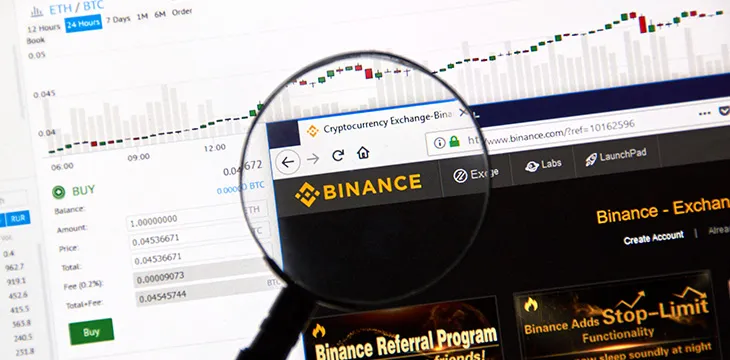|
Getting your Trinity Audio player ready...
|
Binance, considered to be the second largest cryptocurrency exchange in the world, has announced its plans to launch a new crypto-to-fiat exchange in Uganda.
In an interview with CoinTelegraph, Binance founder and CEO Changpeng Zhao said the firm is setting up Binance Uganda, in what would be their first move into crypto-fiat exchange.
“We think that crypto has a very strong use case in less developed countries…there’s more money to be made in a more developed country, but we want to distribute crypto to the rest of the world,” Zhao told the crypto news outlet.
The new platform will support the Ugandan shilling, in addition to a range of leading cryptocurrencies. It follows the firm’s strategic approach to the African market more broadly, where Zhao is known to be bullish.
Zhao pointed out, “Uganda [is a] really interesting situation, only 11 percent of the population has bank accounts. It’s both a challenge and an opportunity. So it may be easier to adopt cryptocurrency as a form of currency instead of trying to push for bank adoption. It’s an interesting experiment – Africa’s a big market, that’s why we’re there.”
Notably, he suggested Binance was carrying the backing of the financial sector, regulators and government in Uganda to bring the project to market. However, Zhao was under no illusions as to the compliance questions Binance would have to answer, with its Uganda platform their first venture in crypto-fiat, as opposed to crypto-to-crypto exchange.
Binance Uganda is to be established as a separate entity, and a separate system to the main Binance platform. While the two companies will remain commercially independent, Zhao stressed there will be “strong business cooperation.”
In practice, the Uganda system is a mirror image of the existing setup, and will replicate many of the same processes. Binance is also known to be working on a number of similar localized platforms, as well as its ongoing efforts to develop a decentralised exchange prototype.
The crypto exchange was originally founded in China, but later moved to Japan in anticipation of regulation changes in China. In March, it opened an office in Taiwan and, at the same time, was accused—long with OKEx and Huobi—of inflating numbers to make itself look better. Binance has since announced that it would open an office in Malta after regulations were tightened in Japan, and has also expanded its operations to Jersey in a bid to attract a larger European market.

 07-08-2025
07-08-2025 





